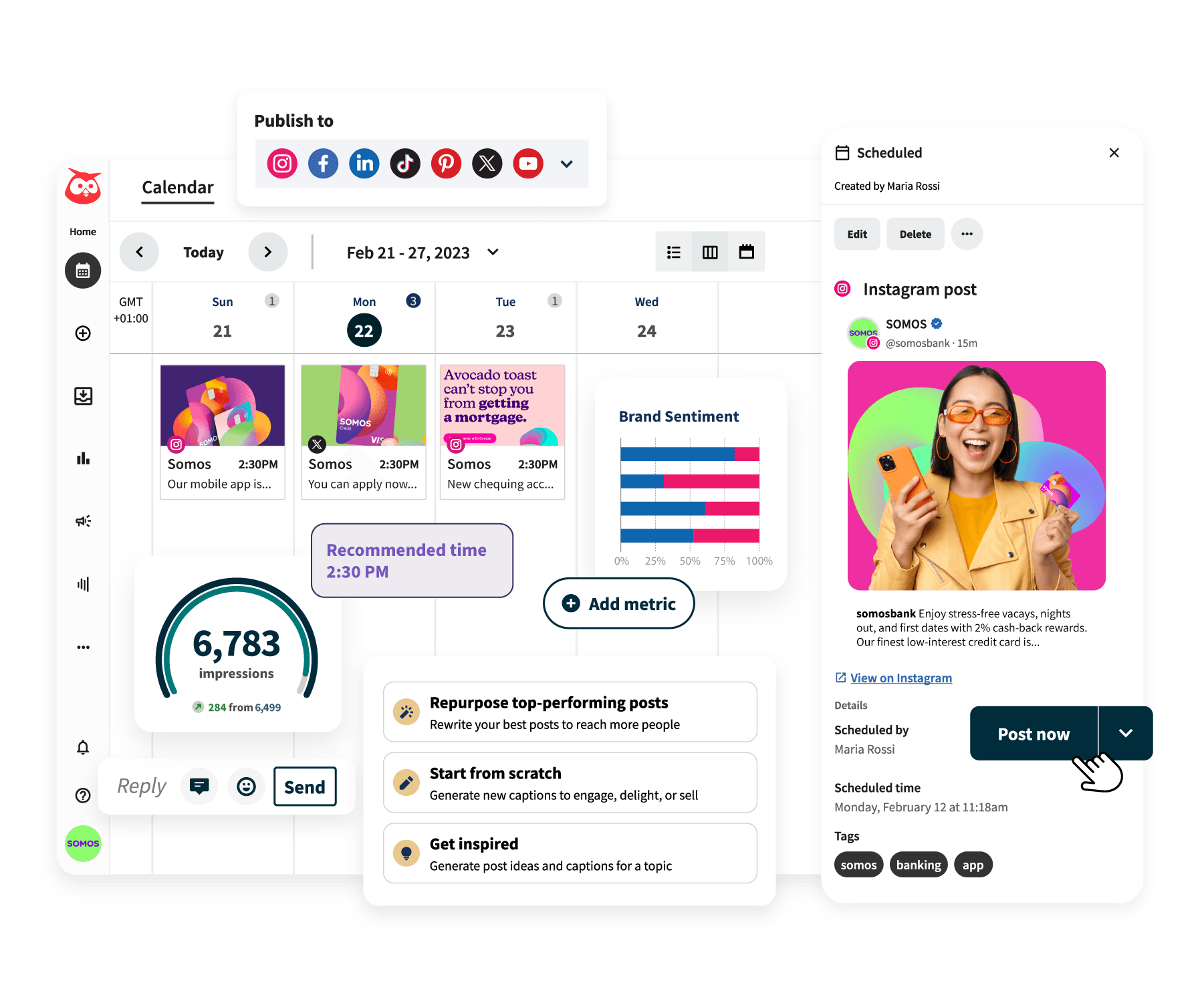Integrating Social Media Marketing with Offline Events: Strategies for Maximum Impact
Meta Description: Discover how to seamlessly integrate social media marketing with offline events to maximize engagement, ROI, and community building. Explore innovative strategies, case studies, and practical insights.
In today's digital-first world, the divide between online and offline marketing continues to blur. As a professional with over 5 years of experience in SEO, specializing in optimizing marketing strategies for 20+ companies, I understand the challenges businesses face in trying to create cohesive campaigns that leverage both social media and offline events. This blog explores how marketers can integrate these two landscapes to drive engagement, maximize ROI, and inspire lasting connections. Here’s how you can get the most out of your marketing efforts.
Understanding the Importance of Integration
As businesses invest in social media marketing and offline events, it's crucial to recognize the complementary benefits derived from integrating both approaches. Here are some essential reasons to bridge the gap:
- Maximize ROI: Events can be resource-intensive, and combining them effectively with social media can enhance visibility and attendance, ultimately leading to better returns on investment.
- Enhance Engagement: Utilizing social media to promote and discuss events fosters excitement and engagement with your brand.
- Build Community: Engage audiences through social media to cultivate relationships that extend beyond a single event, enhancing loyalty and advocacy for your brand.
Case Studies and Success Stories
Coca-Cola’s Share a Coke Campaign
Coca-Cola executed a remarkable integration of social media during its “Share a Coke” campaign. The company encouraged attendees at events to personalize their bottles and share photos on Instagram with event-specific hashtags. This initiative not only engaged existing fans but also attracted new customers as they viewed friends’ posts, leading to a surge in brand visibility and sales.
![]()
Eventbrite's Social Media Promotions
Eventbrite, a leading event management platform, effectively integrates social media by crafting engaging content that promotes local events. They utilize targeted Facebook ads, Instagram stories, and TikTok challenges to drive ticket sales, resulting in higher attendance rates at community events.

Leveraging Statistics to Highlight Benefits
Several studies indicate that integrating social media with offline marketing strategies pays off. According to a survey by the Event Marketing Institute, 84% of attendees report having a more favorable opinion of a brand after experiencing a live event. Furthermore, HubSpot data shows that brands engaging audiences through social media in conjunction with events can boost attendance by up to 20%. These statistics underscore the tangible benefits of combining the two approaches.
Social Media Trends and Insights
With emerging trends like the rise of short-form video content on platforms such as TikTok, brands have incredible opportunities to engage audiences before, during, and after events through creative campaigns. Utilizing real-time audience engagement on platforms like LinkedIn is also becoming critical, especially for professional events and B2B marketing. By creating engaging and shareable content, marketers can maximize their event impact.
Practical Tools to Aid Integration
To seamlessly combine social media with offline events, utilizing the right tools can make all the difference. Here are some recommendations:
| Tool | Purpose |
|---|---|
| Hootsuite | Schedule posts leading up to and during events. |
| Buffer | Share real-time updates and engagement during events. |
| Sprout Social | Monitor conversations and track event-related engagement. |
| Eventbrite | Manage registrations and promote events through social media sharing. |
| Hashtagify | Create and track event-specific hashtags for wider reach. |

These tools not only streamline processes but also ensure consistent messaging across all platforms.
Engagement Strategies
Creating buzz around your event requires strategic planning. Here are some effective strategies to follow:
- Live-Tweeting: During the event, share key moments, insights, and quotes in real-time to keep your audience engaged and informed.
- Contests and Giveaways: Encourage attendees to share their experiences on social media by entering them into contests for various prizes when they use your unique event hashtag.
- Instagram Photo Booths: Set up engaging photo opportunities at your event where guests can snap pictures and share them on social media, amplifying your reach beyond just the physical attendees.
Measuring ROI and Analytics
To effectively measure the impact of your integrated efforts, consider these approaches:
- Utilize Google Analytics to track traffic sources from social media to event pages and monitor user engagement.
- Analyze engagement metrics from your social media campaigns surrounding the event to see which elements garnered the most interactions.
- After the event, collect feedback and metrics to assess attendee satisfaction and areas for improvement.
Best Practices for Successful Integration
To maximize the effectiveness of your marketing strategies, here are actionable best practices to follow:
- Develop a content calendar that aligns social media posts with important event milestones, ensuring each touchpoint is targeted and timely.
- Engage your audience even after the event concludes by encouraging them to share their experiences, photos, and feedback using specific hashtags.
- Monitor discussions across social media platforms and respond promptly to maintain engagement and address any negative feedback.
Addressing Common Challenges
While integrating social media with offline events can offer numerous benefits, it’s not without challenges. Here are some common issues and solutions:
- Negative Feedback: Events might not always go as planned. Assign a dedicated team to respond to real-time feedback and manage crises on social media.
- Consistency in Messaging: Ensure that your promotional messaging aligns across both social media and physical materials to maintain coherence.
Conclusion
Integrating social media marketing with offline events offers a powerful opportunity for brands to enhance engagement, build community, and maximize ROI. By leveraging the strengths of both realms and employing innovative strategies, marketers can drive impactful results. If you’re ready to revolutionize your marketing strategy, consider exploring the potential of integrating social media with your next event. Dive deeper into our resources, and don’t miss out on further insights by signing up for our newsletter!
